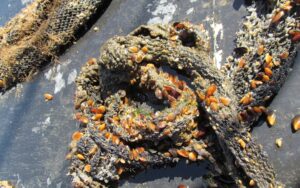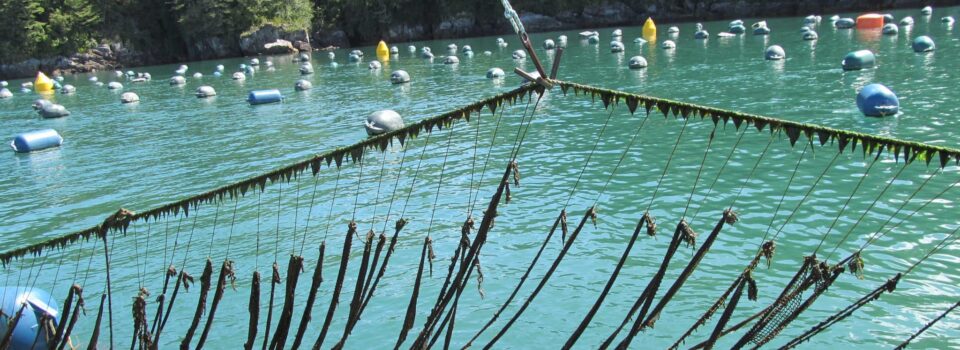IFOP held a workshop on dissemination of larval monitoring and seed collection of mussels
September 10th, 2024 The initiative was carried out online, between 9:30 and 12:30 on Wednesday, August 28.
The initiative was carried out online, between 9:30 and 12:30 on Wednesday, August 28.
On Wednesday, August 28, the Fisheries Development Institute (IFOP) held a workshop to disseminate the results of the “Monitoring and surveillance program on the larval availability of mussels for the sustainability of aquaculture activity in the southern zone of Chile, XI stage 2023-24”, a study that has been carried out since 2013 and is part of the permanent monitoring programs executed by IFOP and defined by the Undersecretariat of Fisheries and Aquaculture.
The workshop was held online through the Microsoft Teams platform. With more than 120 attendees, who expressed great interest in the different presentations. On this occasion we also had 2 presentations by both María Loreto Gaviño and Daisy Carreño who offered topics related to the Research Program such as a Characterization of mussel farming in Chile from the perspective of the Undersecretariat of Fisheries and Aquaculture. In turn, IFOP professionals associated with the monitoring program showed the main results of larval monitoring and presented presentations focused on describing the activity of collecting mussel seeds, inviting the audience to answer questions from the interactive platform “Endemic Seed” taking advantage of the changes and collaborations of other entities with relevant data such as that offered by the Millennium Institute in Coastal Socio-Ecology SECOS and other adjustments that also involve information of applicability from the Specific Objective of Surveys to the mussel farming sector, which can be perfectly linked to the other elements of the platform. This platform can be viewed by the community at: https://www.ifop.cl/monitoreo-larvas-de-mitilidos/
Mussel farming; Chilean mussel aquaculture based on seed capture
Mussel farming in Chile has experienced remarkable growth in the last two decades, with mussel production increasing from 23,996 tons in 2000 to 386,037 tons in 2023. This boom has positioned Chile as the second largest producer and the world’s leading exporter of mussels.
A crucial characteristic of this industry is its dependence on juvenile seeds and plankton from the natural environment. Capture-based aquaculture, which refers to the collection of seeds from the natural environment for cultivation and marketing, has particularities that require special management and regulation.
In this context, the mussel larvae monitoring program, established under the Permanent Research Program of the General Law of Fisheries and Aquaculture of Chile, has been fundamental. This program provides biological-environmental data essential to understanding the natural processes that contribute to the success of mussel farming. Furthermore, this information is expected to serve as a key tool for the management and regulation of seed capture.
Permanent monitoring not only helps to improve seed efficiency and quality by reducing losses and accompanying fauna, but also plays a crucial role in the conservation of natural resources and in the implementation of adaptive management plans. The literature recognizes the importance of these monitoring to answer key questions and support sustainable management of the activity.
For those interested in delving deeper into these topics, workshop presentations are available for download.
- Research program of the Undersecretariat of Fisheries and Aquaculture. Exp. María Loreto Gaviño, professional Aquaculture Division, SUBPESCA
- Characterization of mussel farming in Chile. Exp. Daisy Carreño, professional Aquaculture Division, SUBPESCA.
- Introduction to the Larval Monitoring Program, Justification, objectives and methodologies. Exp. José Videla, IFOP.
- Endemic Seed: Larval abundance of mussels and environmental variables that affect them. Exp. Cristian Segura, IFOP.
- Endemic Seed: Collection of mussel seeds in contrasting areas. Exp. Cristina Stuardo, IFOP.
- Endemic Seed: Territorial perception of the activity of collecting mussel seeds. Macarena Herrera, IFOP.
Interact here with this platform: Monitoring mussel larvae
For more information about the activity, write to cristian.segura@ifop.cl.
Press related links:
